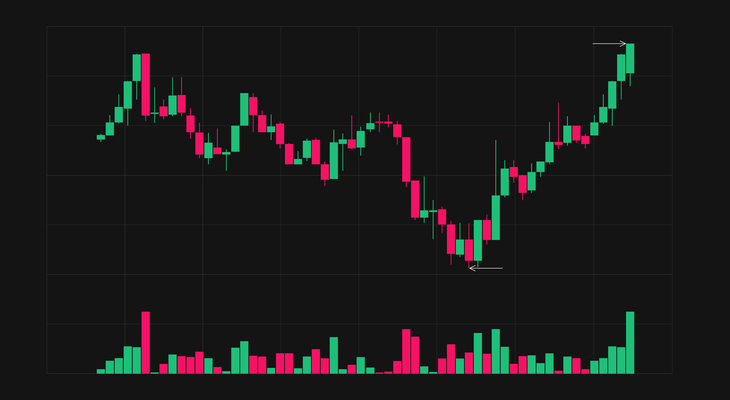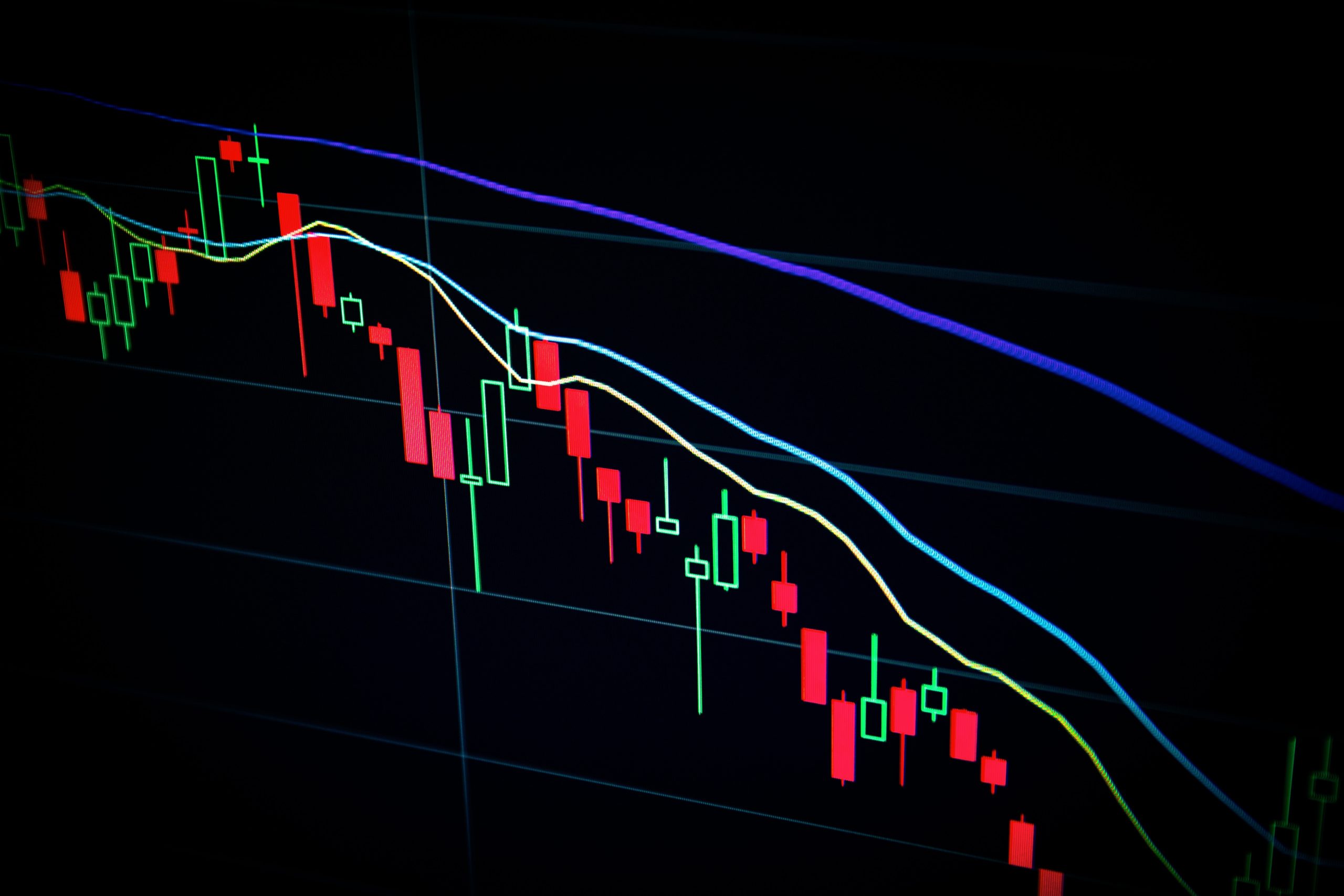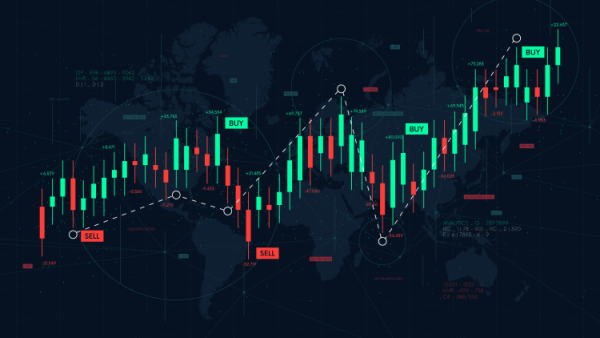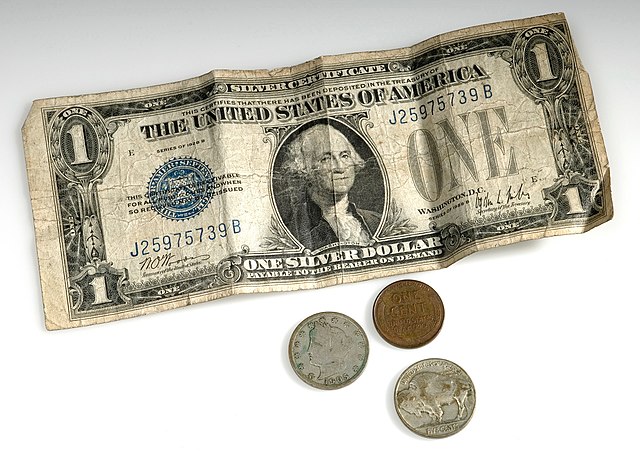Day trading is a popular method of investing in the stock market that involves buying and selling securities within the same trading day. It can be a profitable venture, but it requires speed and efficiency in analysis, research, and execution. For beginners, finding the right day trading software can be a challenging task.
As the year 2023 approaches, the demand for reliable and efficient day trading software for beginners is becoming increasingly important. In this article, we will evaluate the top day trading software programs for beginners in 2023. Our analysis will focus on the most important factors that a beginner day trader should consider, such as speed, efficiency, data-driven decision making, and risk management strategies. We will provide a detailed review of each software option, including Trade Ideas, Cobra Trading, Black Box Stocks, Edgewonk, and Benzinga Pro.
Additionally, we will discuss the requirements and challenges of day trading, as well as the best online brokers and trading platforms for beginners. This article is aimed at providing a comprehensive guide to beginners who are looking to succeed in day trading and achieve their financial freedom.
Key Takeaways
- Day trading requires speed and efficiency in analysis, research, quotes, trading signals, order routing, and execution.
- Best day trading software for beginners includes Trade Ideas for market scans, charting, real-time alerts, backtesting, simulated and live trading, market news, and education, and Cobra Trading for fast and accurate order execution quality, excellent support, and a free platform demo on request.
- Other top day trading software for beginners include Black Box Stocks for pre-configured stock screener with proprietary algorithms that rank trade alerts in real-time, day trading education, and analysis software, and Edgewonk for importing all trades to analyze them intensively and identify the most profitable strategies and trading methods.
- Recurring subscription fees of $300 per month for data feeds, charting software, day trading tools, and day trading software are needed, and a minimum of $25,000 is required for day trading accounts due to the pattern day trader rule to protect private investors.
Speed and Efficiency
Efficient and speedy trading processes are critical for successful day trading, and beginners can enhance their trading experience with the best day trading software available. These software options can improve various aspects of trading, including analysis techniques, order routing, and execution.
With real-time data sources and advanced analysis tools, traders can make data-driven decisions and manage their risks effectively. One of the most crucial aspects of day trading is the speed and accuracy of data analysis. The best day trading software for beginners offers advanced analysis techniques that can help traders identify profitable trades quickly.
With real-time data sources, traders can stay up-to-date with market trends and make informed decisions. Additionally, these software options provide tools for order routing and execution, ensuring that trades are executed accurately and efficiently. Overall, the best day trading software for beginners emphasizes data-driven decision making and risk management strategies, enabling traders to optimize their trading experience and increase their chances of success.
Best Day Trading Platform
Fast and accurate order execution quality is a crucial factor to consider when selecting a suitable trading platform for active traders. Direct access brokers like Cobra Trading offer an intuitive, user-friendly platform with customizable hotkeys, allowing for optimized order routing and execution. With a focus on speed and efficiency, Cobra Trading offers excellent support and a free platform demo on request, making it an excellent choice for beginners.
Another great option for day trading beginners is Black Box Stocks, which offers pre-configured stock screeners with proprietary algorithms that rank trade alerts in real-time. The platform’s user interface design is simple and intuitive, allowing for quick and easy navigation. Additionally, Black Box Stocks provides day trading education and analysis software, making it a comprehensive solution for beginners.
Overall, when selecting a day trading platform, it is essential to prioritize fast and accurate order execution quality, platform customization, and user interface design for optimal performance and success.
Best Day Trading Program
One option for active traders seeking a comprehensive day trading solution is Black Box Stocks. This program provides users with a pre-configured stock screener featuring proprietary algorithms that rank trade alerts in real-time.
Additionally, Black Box Stocks offers day trading education and analysis software that is designed to help traders make data-driven decisions and implement risk management strategies.
Black Box Stocks offers numerous program features that can help traders achieve their financial goals. The user interface is designed to be intuitive and easy to use, allowing traders to quickly analyze market trends and make informed decisions.
Additionally, the program includes a variety of technical indicators and pre-defined trading strategies that can help traders identify profitable trades. Overall, Black Box Stocks is an excellent choice for traders who are looking for a comprehensive day trading program that can help them achieve their financial goals.
Trading Journal Software
Edgewonk is a popular trading journal software that allows traders to import all of their trades for in-depth analysis and identification of profitable strategies and trading methods. This trading journal software is designed to help traders track their progress, identify areas for improvement, and develop a winning trading strategy. Edgewonk incorporates advanced analytics, data visualization, and performance tracking tools to help traders make data-driven decisions and manage risk effectively.
One of the key benefits of using Edgewonk is the ability to analyze trading data for success. The software allows traders to import all of their trades from various brokerage accounts and analyze them in real-time. This allows traders to identify patterns, trends, and areas where they need to improve. The software also provides detailed performance reports, including win/loss ratios, average trade duration, and profitability by asset class. By tracking trades and analyzing trading data, traders can develop a winning strategy that is tailored to their individual needs and trading style.
| Pros | Cons |
|---|---|
| Advanced analytics and performance tracking tools | Expensive subscription fees |
| Data visualization and reporting | Only available for Windows |
| Supports multiple brokerage accounts | Steep learning curve |
| Customizable trading journal templates | Limited customer support |
| Comprehensive trade analysis features | Limited integration with third-party tools |
All-In-One Solution
Benzinga Pro is a popular all-in-one trading platform that provides a comprehensive solution for day traders. This software integrates market scanning, news streaming, options data screening, charting, and trading chat in one place. Day traders can use the platform to improve their trading process by accessing real-time market data, analyzing trading opportunities, and making data-driven decisions.
One of the key benefits of Benzinga Pro is its customization options. Traders can choose from a wide range of tools and features to create a personalized trading experience that suits their needs.
Additionally, the platform has a user-friendly interface that makes it easy for beginners to navigate and understand.
Overall, Benzinga Pro is a powerful tool that can help day traders improve their trading process and maximize their profits.
Subscription Fees
Recurring subscription fees are a necessary expense for day traders who want to access data feeds, charting software, day trading tools, and day trading software.
When comparing subscription fees for day trading software programs, it is important to consider the cost-benefit analysis of each option.
There are both free and paid day trading software programs available, with the latter generally offering more features and tools for traders to use.
However, it is important to keep in mind that subscription fees can significantly affect profitability in day trading.
While the cost of accessing high-quality trading tools and data may seem steep, the potential returns can outweigh the fees.
Therefore, day traders should evaluate their budget, trading style, and goals to determine which software program is best suited for their needs and offers the most value for their investment.
Retail Brokers vs Day Trading Brokers
Moving on from subscription fees, let’s compare the advantages of retail brokers versus day trading brokers.
Retail brokers offer commission-free trading and a wide range of assets to trade from one account.
However, retail brokers may not provide the same level of speed and execution quality that day trading brokers offer.
On the other hand, day trading brokers specialize in catering to the needs of active and advanced traders, offering powerful analysis tools and fast trade execution.
Day trading brokers charge a fixed commission per trade or a fraction of a cent per share, which may be cost-effective for high-frequency traders.
Moreover, day trading brokers allow traders to bypass the Pattern Day Trader rule by offering leverage and margin accounts, which may be useful for traders who do not have a $25,000 minimum account balance.
In summary, the choice between retail brokers and day trading brokers depends on individual preferences and trading styles.
Automated Trading Software
Automated trading software has revolutionized the way traders execute trades, allowing for the elimination of potential human error and the implementation of pre-defined trading strategies. This type of software is especially beneficial for day trading, where speed and efficiency are essential. The advantages of using automated trading software include the ability to backtest strategies, set stop-loss orders to manage risk, and execute trades quickly and accurately. Additionally, automated trading software can help eliminate emotional decision-making, which can be a significant issue for many traders.
However, it is crucial to note that relying solely on automated trading software comes with its own set of risks. The software is only as good as the strategy it is programmed to follow, and unexpected market movements can quickly derail even the best-planned strategies. Additionally, over-reliance on automated trading software can lead to a lack of critical thinking and analysis, which can be detrimental to long-term success. Therefore, it is essential to use automated trading software as a tool in conjunction with sound risk management and data-driven decision-making.
| Software | Advantages | Risks | ||||
|---|---|---|---|---|---|---|
| Trade Ideas | Real-time alerts, backtesting, market scans | Limited customization | ||||
| Black Box Stocks | Pre-configured stock screener, real-time trade alerts | Limited educational resources | ||||
| Edgewonk | In-depth trade analysis, import all trades | High subscription cost | ||||
| Benzinga Pro | Market scanner, news stream, options data screener | Limited technical analysis tools | ||||
| Cobra Trading | Fast and accurate order execution | High commission fees | Schwab Trading Services | Low commission fees, extensive educational resources, customizable trading platform | Limited access to international markets |
Requirements and Differences
The requirements and differences between various day trading platforms and brokers can significantly impact a trader’s success and overall experience. Here are three key factors to consider when choosing a day trading platform:
-
Speed of trade execution – The faster a trade can be executed, the better the potential profit. Day traders require a platform that can handle high volumes of trades with minimal lag time. Direct access brokers, such as Cobra Trading or LightSpeed Trader, offer lightning-fast trade execution, but at a higher cost than retail brokers.
-
Availability of real-time data – Accurate and timely market data is critical to making informed trading decisions. Day trading platforms should provide real-time data on market movements, financial news, and technical indicators for stocks, options, futures, and currencies. Retail brokers like TradeStation and E-Trade offer commission-free trading and real-time data, but their order routing can be restrictive.
-
Risk management tools – Day trading involves significant risk, and successful traders know how to manage that risk effectively. Look for a platform that offers risk management tools such as stop-loss orders, trailing stops, and automated trading strategies. Some platforms, like Black Box Stocks, even offer proprietary algorithms that rank trade alerts in real-time based on risk and profit potential.
It’s also important to note the differences between day trading and swing trading, as well as stock trading and forex trading. Day trading involves buying and selling securities within the same day, while swing trading involves holding positions for several days to several weeks. Stock trading involves buying and selling shares of individual companies, while forex trading involves buying and selling currencies. Traders should choose a platform that aligns with their preferred trading style and asset class.
Frequently Asked Questions
What is the minimum investment required to start day trading as a beginner?
The minimum investment required to start day trading as a beginner varies depending on the trading strategy chosen and the risk management techniques implemented.
Day trading strategies involve frequent buying and selling of securities within a single trading day, with the goal of profiting from short-term price movements.
Risk management techniques are crucial in day trading to minimize losses and protect capital.
It is recommended to have a minimum investment of $25,000 to comply with the pattern day trader rule in the United States, which requires maintaining a minimum balance of $25,000 in the trading account.
Automated day trading software can help eliminate potential human errors and reduce stress in the trading process.
Successful day trading also requires a thorough understanding of the market, technical analysis, and the ability to make data-driven decisions.
How many trades per day can a beginner day trader expect to make?
On average, a beginner day trader can expect to make anywhere from 10 to 300 trades per day, depending on their experience level and risk tolerance. However, it is important to note that trading frequency does not necessarily correlate with profitability.
Common mistakes made by beginner traders include overtrading, failing to implement risk management strategies, and not conducting thorough analysis before making trades. To maximize profits, it is essential to use data-driven decision making and to carefully evaluate each software option available.
Additionally, utilizing tools such as trading journals and advanced analysis software like Edgewonk can help identify profitable strategies and trading methods. Ultimately, success in day trading requires a clear commitment to risk management and an understanding of the unique requirements and challenges of this trading method.
Can retail brokers compete with day trading brokers in terms of execution speed?
Retail brokers and day trading brokers differ significantly in execution speed, with day trading brokers typically providing faster and more efficient order routing and execution. The impact of latency on day trading success cannot be overstated, as even milliseconds can mean the difference between a profitable trade and a loss.
While retail brokers offer commission-free trading and a variety of trading tools, they often force orders to go through pre-defined routes, which can lead to slower execution and missed opportunities. Additionally, retail brokers may not be able to handle the high trading frequency and order sizes required by pattern day traders.
For those looking to engage in day trading, it is essential to carefully evaluate all available trading software options and utilize data-driven decision making and risk management strategies to maximize profitability and minimize risks.
Are there any commission-free day trading brokers available for beginners?
When it comes to commission-free day trading brokers, beginners should understand commission structures and choose the right trading platform that meets their needs. Commission-free brokers typically generate revenue through other means, such as selling order flow or charging for premium features. It’s important to carefully evaluate each option and weigh the potential savings against any hidden costs or limitations.
In addition to commission fees, beginners should consider the trading platform’s speed, reliability, and functionality, as well as their own risk management strategies. Making data-driven decisions and staying disciplined can help mitigate the risks associated with day trading. Ultimately, the best commission-free day trading broker for beginners will depend on their unique circumstances and preferences.
How does the PDT rule affect options trading for day traders?
The PDT rule, or pattern day trader rule, affects options trading for day traders by requiring them to maintain a minimum balance of $25,000 in their trading account to avoid restrictions on their trading activities.
Margin trading is also impacted by the PDT rule as it limits the amount of borrowing power available to day traders.
To avoid these restrictions, day traders may employ strategies such as swing trading, which involves holding positions for longer periods to avoid excessive trading activity.
Additionally, PDT rule exceptions may be available to traders who meet certain criteria, such as being a registered market maker or having a high net worth.
Effective risk management strategies and data-driven decision making are crucial for day traders to navigate the complexities of options trading and comply with regulatory requirements.
Conclusion
In conclusion, day trading can be a lucrative way to make money in the stock market, but it requires speed and efficiency in analysis, research, and execution. Finding the right day trading software can be a daunting task for beginners.
Our review of the top day trading software programs for beginners in 2023 has provided valuable information on the best options available, including Trade Ideas, Cobra Trading, Black Box Stocks, Edgewonk, and Benzinga Pro.
It’s important to consider the requirements and challenges of day trading, as well as the best online brokers and trading platforms for beginners. By using data-driven decision making and risk management strategies, traders can increase their chances of success.
Whether you’re just starting out or looking to improve your day trading skills, investing in the right software can make all the difference. With the right tools and knowledge, anyone can succeed in the stock market.











